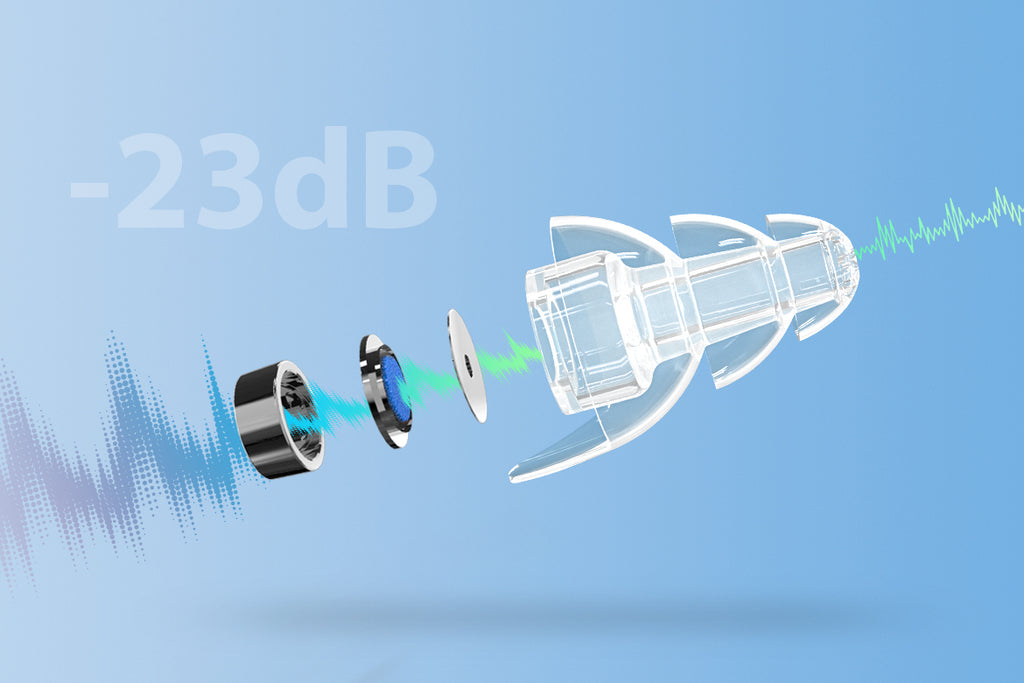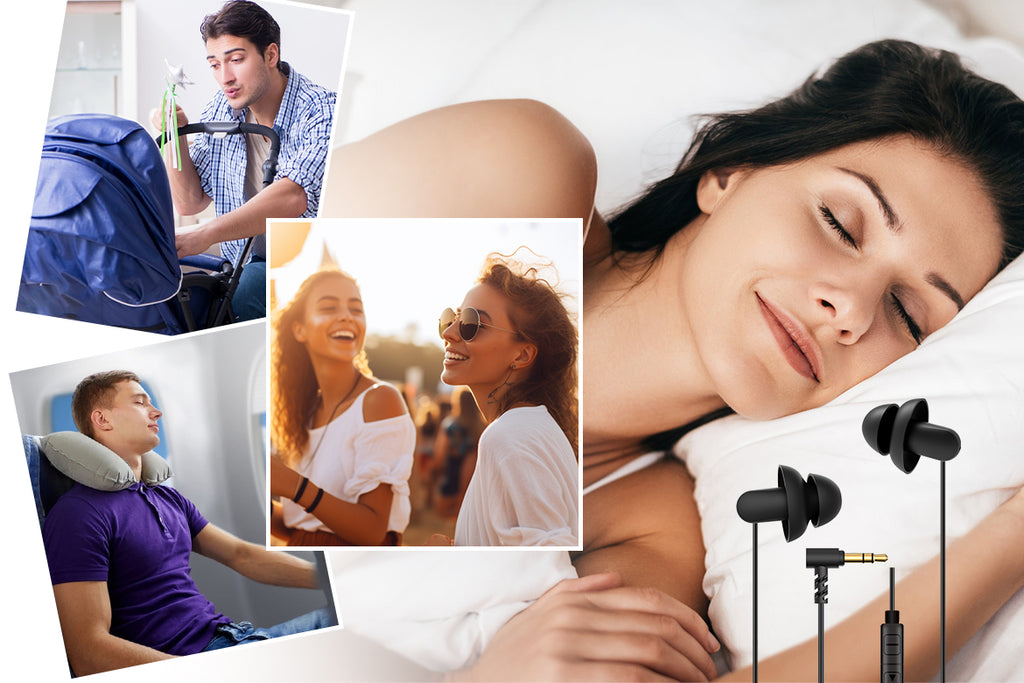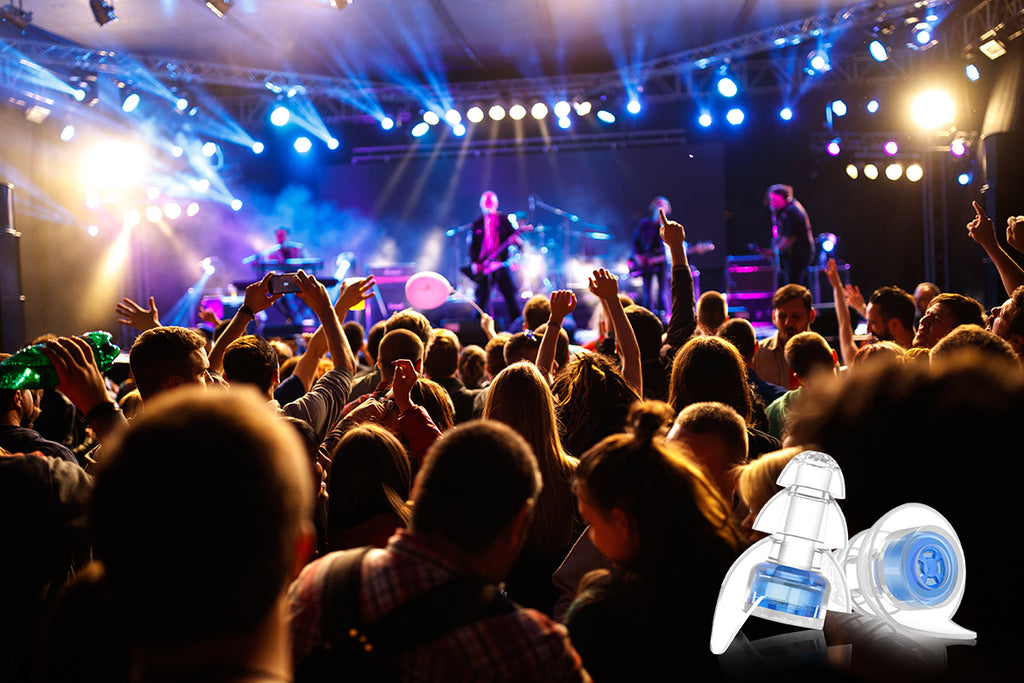Exposure to excessive noise can negatively impact health and quality of life. Noise pollution continues to increase, making earplugs an essential tool for many. But with a dizzying array of options on the market, choosing the best noise-reduction earplugs for your specific needs and situation can be challenging.
This in-depth article will break down the key types of noise-cancelling technologies, analyze why people wear earplugs and discuss critical factors to evaluate when shopping for the most effective noise-blocking earplugs.
What is Noise Cancellation?
Noise cancellation refers to methods of reducing or eliminating external noise using technology built into headphones, earbuds, and earplugs. There are three main types of noise-cancellation solutions used in earplugs today:
Passive Noise Cancellation
- Uses physical barriers like molded silicone or foam tips that simply block sound waves from entering the ear canal.
- Attenuates or muffles noise but does not eliminate it.
- Most affordable and accessible option. Widely available.
Active Noise Cancellation
- Uses tiny microphones and speakers to generate inverse sound waves that cancel external noise.
- Advanced electronics analyze environmental noise and produce opposing frequencies to counteract sounds.
- Allows higher levels of noise blocking but requires power like batteries.
- More expensive but effective for very loud environments.
Adaptive Noise Cancellation
- The most technologically advanced noise cancellation option.
- Auto-adjusts the level of active noise cancellation in real time based on environmental noise levels.
- Maximizes protection while minimizing power consumption.
- Cutting-edge earbuds for musicians, pilots, and skilled trade workers.
- Actively adapts to reach the optimal balance between power and performance.
Why Do People Wear Earplugs for Noise Reduction?
Individuals rely on noise-reduction earplugs for a diverse array of reasons:
- Alleviate Noise Sensitivity: Conditions like hyperacusis cause normal volumes to be perceived as painfully loud. Earplugs deliver relief.
- Improve Sleep: Blocking noise aids sleep when living in inherently loud environments like apartments, with snoring partners, etc.
- Baby Care: Parents use earplugs to mute extremely loud cries while monitoring infants.
- Air Travel: Frequent flyers depend on earplugs to mute in-flight cabin noise during long flights. Reduces fatigue.
- Concerts: Using protective earplugs, musicians, and concert-goers prevent hearing damage from prolonged loud music exposure.
- Motorcycle Riding: Riders require earplugs to block dangerous wind, engine, and traffic noise at high speeds.
What to Look for When Buying Earplugs?

With endless earplug options, here are the most important factors to evaluate:
- Noise Filtering Technology – Assess whether basic passive, advanced active cancellation or adaptive filters suit your needs.
- Reusable – Washable, reusable earplugs are more economical and eco-friendly than disposable foam plugs. Convenient to keep on hand.
- Noise Reduction Rating in dB – Check the NRR decibel rating to ensure enough sound blocking for your environment. Higher is better.
- Style – Discreet earplugs integrate seamlessly. Low-profile designs comfortably fit under hats, headphones, helmets, etc.
- Comfort – Soft silicone construction allows for all-day wear without canal pressure. Look for an ergonomic, non-irritating fit.
Key Takeaways

The ideal earplugs are those tailored to your specific noisy situation, whether for noise sensitivity, sleep, travel, motorsports, or concerts. Passive and active noise cancelling technologies both help filter sound at different levels. When shopping, prioritize high noise reduction ratings, reusability, subtle styling, and maximum comfort to find your perfect match. With the right earplugs, you can take control of your sound environment.
Conclusion
Noise-reduction earplugs have become crucial for combating performance-hindering, health-harming, and comfort-reducing noise pollution. By understanding the nuances between available technologies and how to select the optimal pair for your personal needs and environment, you can benefit fully from noise control and protection. A bit of research helps you discover the earplugs that allow you to hear the world at the volume you want.

FAQs
- Q: How do you know if an earplug has good noise reduction?
- Check the Noise Reduction Rating (NRR) in decibels. The higher the decibel rating, the more sound-blocking ability. Look for an NRR of 20 or above.
- Q: What makes a comfortable earplug?
- Look for soft silicone construction in an ergonomic shape that doesn't press into the ear canal. This allows comfortable, non-irritating long-term wear.
- Q: Can you wear earplugs under headphones or a helmet?
- Yes, the low-profile, discreet earplug designs can comfortably fit under headphones, hats, helmets, etc., without being noticeable.












